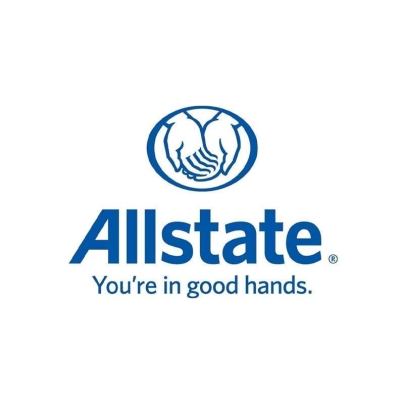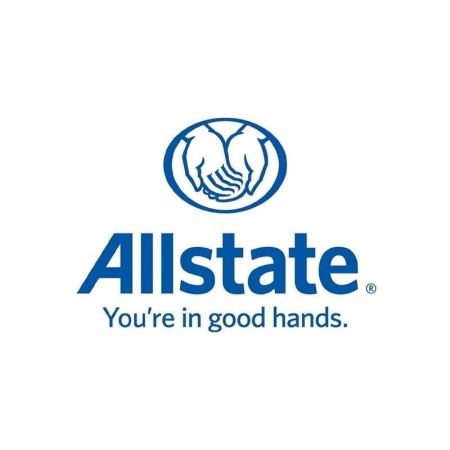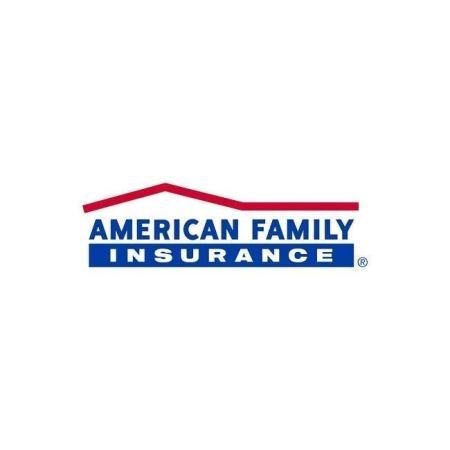
We may earn revenue from the products available on this page and participate in affiliate programs. Learn More ›
While college students are embarking on their exciting journey into campus life, they’re likely not focused on purchasing renters insurance. But accidents happen, items get stolen or damaged, or a visitor gets hurt. This is where a good renters insurance policy can step in and provide coverage that limits the out-of-pocket costs to replace belongings, repair property damage, and pay medical bills or legal fees. There are providers that understand the unique needs of college life and can work with tight budgets to protect laptops, electronics, and other belongings, as well as provide liability coverage and other types of financial protection for students living outside of dorms. Whether a student is living on or off-campus, the best renters insurance for college students offers additional peace of mind for college students when they’re living at their home away from home.
- BEST OVERALL: State Farm
- RUNNER-UP: Allstate
- BEST EXTENDED COVERAGE: Farmers Insurance
- BEST FOR LOW RATES: Lemonade
- ALSO CONSIDER: American Family Insurance

What to Consider When Choosing One of the Best Renters Insurance Companies for College Students
Finding the most affordable renters insurance can be a natural concern for college students because of limited budgets, but the price of a well-rounded student renters insurance policy may not be the only factor worth considering. College students may want to consider availability, coverage options, and the overall customer experience, among other factors, when getting renters insurance.
Coverage Area
Not all insurance companies provide renters insurance policies in all locations. Some providers exclude certain states, or even certain cities or areas. For instance, insurance companies may limit availability in coastal areas that are at a higher risk for hurricanes. When conducting a renters insurance quote comparison for college students, a good place to start is with the coverage area, confirming a provider does in fact offer renters insurance in the location of the student’s particular property.
This is especially important for college students, who often move away from home and possibly to another state. Additionally, potential policyholders will want to bear in mind that not all coverage options will necessarily be offered in all areas either. If there’s a particular policy add-on a renter is interested in, such as coverage for earthquake damage, the renter will want to find out if that coverage is available in their location.
Coverage Amount
When college students look at their renters insurance options, they may want to take some time to review the coverage limits included with a policy, such as personal property coverage, personal liability coverage, and loss of use coverage. Although two policies may cost the same, there may be a remarkable difference in coverage amounts, which would dictate how much the insurance provider would pay on a renters insurance claim. As such, the policy with higher coverage limits may offer a better deal to the policyholder.
Renters looking to get the most value from their policy may want to prioritize comparing coverage amounts during the selection process. It may also be important for college students to look at coverage limits for any add-ons they may want to purchase, as those limits can differ quite a bit from other coverage offered through a standard renters policy.
Policy Options
At the minimum, a standard renters insurance policy should include coverage for personal property, liability, medical payments to others, and loss of use—which reimburses the policyholder for costs beyond their typical expenses if they are displaced from their home due to a covered loss. Policy add-ons give policyholders the opportunity to truly customize their insurance plan and make it a good renters insurance policy for their particular needs. Add-on options (or endorsements) can vary from one provider to the next, but common endorsements can include:
- Coverage for specific types of personal property: Policyholders may be able to purchase additional personal property coverage for items that may have limited coverage with a standard renters insurance policy. This could include expanded coverage for items such as high-value jewelry, sports equipment, computers, musical instruments, or other collectibles.
- Coverage for identity theft: Insurance companies may offer an endorsement to help pay for restoration services if the policyholder’s identity is stolen or if they are the victim of a data breach.
Insurance Premiums
Cost is likely a top concern for budget-conscious college students since they may not have a steady flow of income or other forms of financial support. Insurance premiums are the cost policyholders pay in exchange for insurance coverage. Some providers allow monthly or quarterly payments, which may be better suited for a college student’s budget. However, others may require an annual payment, so if a particular payment schedule is preferred, then college students may want to verify their options when comparing renters insurance companies.
A policy’s insurance premium is based on multiple factors including the property’s location, coverage amount selections, and any policy add-ons that the customer has requested. Risk factors—such as the presence of a security system, proximity to a local fire department, and ownership of potentially dangerous dog breeds—could impact the total cost of renters insurance as well. When comparing policies, the renter will want to be sure to communicate the same coverage options—how much coverage they need and what deductible they want, for instance—to each provider, as well as try to obtain quotes on the same day, so they can accurately compare policy costs.
Quote Process
The quote process is an essential piece of choosing the best renters insurance for students. It may be a good idea to compare renters insurance rates and coverage options among multiple providers when possible. This not only gives college students an opportunity to shop around and find the best rates available, but it can also provide a glimpse into the customer experience a company might provide to policyholders. A quick and streamlined quote process could indicate that an insurance company is easy to work with or has similarly straightforward processes in place to handle claims.
Online quotes are frequently available with many insurance companies, and in some cases, providers may only offer an online quote option. Other renters insurance companies may provide multiple avenues for college students to get a quote, including online, over the phone, or at a local branch office.
Claims Process
Filing a claim can be a stressful process for anyone, especially when a policyholder has lost something valuable or become displaced following a covered peril. College students who have never needed to file an insurance claim before may feel even more overwhelmed. A provider’s claims process can be a source of relief if the company quickly processes and pays out claims, or it can pile on even more stress if it is difficult to navigate and the claim is slow to be resolved. Each insurance company may have its own way of approaching claims, allowing policyholders to go through the entire process either via a mobile app, online portal, over the phone, or with a local agent.
Someone filing a claim may prefer the quickest route possible, uploading receipts, photos, and videos online or with the help of a mobile app. However, others may prefer working with someone face-to-face so they can ask questions and receive more hands-on guidance while filing a claim. After considering all the options, a renter may decide to pick a company that most closely aligns with their communication preferences as it pertains to claims.
Deductibles
A deductible is the amount of money an insurance company will deduct from the payout on a claim before disbursing funds to the policyholder. For instance, if a renter files a $2,000 claim and has a $500 deductible, then their expected payout would be $1,500. Insurers often offer multiple options for deductibles, which gives policyholders the flexibility to adjust their deductible to suit their preferences and financial situation.
Increasing the deductible amount can result in a lower premium for the policyholder, while lowering it will lead to a higher insurance rate. However, if the deductible is too high, it could result in a payout that is much smaller than the policyholder expected. This may be especially problematic for college students on a limited budget, so they may want to carefully weigh the benefit and risk of a higher deductible amount.
Additional Policies
Bundling a renters insurance policy with another policy, such as auto, motorcycle, or pet insurance, is a common way to save even more on the total cost of insurance. Many providers offer discounts—some of which are substantial—to customers who carry more than one type of insurance policy with the company. Plus, bundling makes it more convenient to manage policies, make payments, and file claims since policyholders only need to work with one provider rather than multiple insurance companies. As such, college students who are in the market for other types of insurance in addition to renters insurance may want to take into account what options are available with each insurance provider.
Discounts
College students who are on a tight budget may look for every opportunity to save on a renters insurance policy. For this reason, it may be worth asking providers about any discounts they offer on renters insurance. As noted, bundling insurance policies is a way for policyholders to save money on their insurance, but there may be other ways to save on a renters insurance policy. Loyalty discounts, discounts for security alarms and other safety devices, discounts for paperless billing, and discounts for automatic payments are common examples of other opportunities to lower the cost of renters insurance. Discounts do vary from one company to the next, so renters may want to consider which discounts are available to them when shopping around and comparing policies.
AM Best Rating
Renters who are concerned about the financial stability and long-term outlook of their insurance company may want to compare the AM Best rating of different providers. AM Best is a credit-rating agency that specializes in the insurance industry and is generally considered to be highly credible for evaluating the financial strength of insurance companies. Financial strength can be an important consideration for renters who want reassurance that their insurance provider will be able to continue providing coverage and paying out claims as expected for the foreseeable future.
AM Best insurance ratings range between A++ (Superior) ratings to D (Poor) ratings, with many financial experts recommending that customers choose a company with at least a B+ (Good) rating. A higher rating can be a strong indicator that a company is financially stable and a solid choice for renters insurance.
Our Top Picks
The best renters insurance companies often focus on providing a range of coverage options at an affordable price. College students may want to consider what factors matter to them most, whether that be coverage, cost, or availability, when weighing their options.The following companies excel in various areas, placing them among the best renters insurance options out there for college students.
Best Overall
State Farm
Why It Made the Cut:
State Farm’s large service area, strong financial strength rating, and high available personal liability coverage limits make it a top contender for college students.
State Farm offers renters insurance in 49 states and Washington, D.C., so college students in many parts of the country will have this company as an option. State Farm allows policyholders to file claims through an agent, over the phone, online, or via the mobile app, providing a great deal of flexibility in this process. A renters insurance policy from State Farm can offer up to $1 million in liability coverage—a standout among renters insurance providers. This high coverage limit can help pay for damages in the event a college student is found liable for injuries or property damage throughout the length of their policy term.
Although State Farm does not offer many discount opportunities for renters to explore, policyholders can lower their insurance costs by bundling their renters insurance with other policies, installing various protective devices in their home, or adjusting their deductible. Additionally, State Farm’s Superior A++ rating from AM Best is the highest grade possible, giving policyholders greater peace of mind and providing another reason why it’s a top pick on this list.
Specs
- Coverage area: 49 states and Washington, D.C.
- Personal property coverage amount: Up to $110,000
- Quote process: Online, phone, agent
- Claims process: App, online, phone, agent
- Deductibles: $500 to $2,000
- AM Best rating: A++
Pros
- Large service area covering 49 states and Washington, D.C.
- High $1 million personal liability coverage amount available
- A++ AM Best rating
Cons
- Limited discount opportunities
Runner-Up
Allstate
Why It Made the Cut:
Allstate offers a wide range of deductible options and online renters insurance resources, as well as a large coverage area, making it a good option for college students.
Allstate has numerous features that make it a top consideration for college students. For starters, the large coverage area spanning every state except for California means that the company’s policies are available in large swaths of the country. College students may also appreciate the numerous informational resources on its website, which can offer a lot of helpful advice and tips for anyone buying renters insurance or living away from home and renting property for the first time.
It’s of note that Allstate requires 2 months of premium payment due up front, which could be an expense that cash-strapped college students will need to budget around. However, Allstate does offer a range of deductible options that can be adjusted to either lower premiums or increase payouts on a claim. In particular, the low $250 deductible option could be very appealing to renters who want to receive a larger payout if it’s necessary to make an insurance claim.
Specs
- Coverage area: 49 states and Washington, D.C.
- Personal property coverage amount: Up to $150,000
- Quote process: Online, phone, agent
- Claims process: App, online, phone, agent
- Deductibles: $250 to $1,000
- AM Best rating: A+
Pros
- Large service area covering 49 states and Washington, D.C.
- Low $250 deductible option available
- Many free online informational resources specifically designed for renters
Cons
- 2 months of payment due up front
Best Extended Coverage
Farmers Insurance
Why It Made the Cut:
Farmers Insurance offers various loss of use coverage terms—including extended coverage for up to 24 months—and high available personal liability coverage limits, which makes it a valuable option worth considering.
Farmers Insurance offers optional high coverage limits on some of the key components of its renters insurance policies. For instance, college students who are concerned that they or their pets may be found liable for damages or injuries may appreciate the company’s high $1 million personal liability coverage limit available on renters insurance. Although Farmers Insurance offers somewhat limited add-on opportunities, those that do exist can be quite generous. For instance, the extended loss of use coverage gives renters the option to increase their coverage terms so their insurance pays unexpected expenses above and beyond typical living costs—such as meals from restaurants or the cost of staging in a hotel—for as long as 24 months under certain circumstances. This could appeal to college students who may be concerned about what could happen if their apartment or rental unit is left uninhabitable following a fire or other covered event and want the peace of mind that comes with more generous loss of use coverage. Policyholders can also select from a wide range of loss of use coverage limits up to 100 percent of their personal property amount.
College students who are more comfortable using digital platforms may be disappointed in the lack of mobile app support, but the company does have other digital resources that could be very helpful, especially for first-time policyholders. In particular, the site’s personal property calculator can help college students determine how much coverage they need when purchasing a renters insurance policy so they don’t underestimate the value of their personal property and end up with less coverage than they might need.
Specs
- Coverage area: 41 states
- Personal property coverage amount: Up to $150,000
- Quote process: Online, phone, agent
- Claims process: Online, phone, agent
- Deductibles: $500 to $2,500
- AM Best rating: A
Pros
- High $1 million personal liability coverage available
- Lengthy 24-month loss of use coverage available
- Helpful personal property calculator
Cons
- Limited additional endorsements
- No mobile app support
Best for Low Rates
Lemonade
Why It Made the Cut:
Lemonade stands out for its unique charitable donation program, AI-based claims-approval platform, and relatively low insurance premiums.
Lemonade may be a very appealing choice for college students who are interested in buying renters insurance. Those who are on a budget or simply want to minimize their insurance costs may appreciate the lower premiums Lemonade generally offers. Because the company’s renters insurance rates tend to be low, policyholders may not notice the limited discount opportunities that are available to them.
Additionally, Lemonade has a unique claims approval process that uses advanced technology and can instantly approve some insurance claims. This could lead to quicker payouts on straightforward claims, which may be very appealing to cash-strapped college students who need access to their funds as soon as possible. Although Lemonade isn’t currently rated with AM Best, the company has received an “A” or “exceptional” rating from Demotech, which is another credit-rating agency specializing in assessing the financial stability of specialty and regional insurance providers.
Somewhat unique is that Lemonade will donate a portion of unclaimed premiums to a charity of their choice. College students who are passionate about a particular cause may gravitate toward an insurance company that distributes excess premiums in this way.
Specs
- Coverage area: 28 states Washington, D.C.
- Personal property coverage amount: Up to $250,000
- Quote process: Online
- Claims process: App
- Deductibles: $500 to $2,500
- AM Best rating: Not rated
Pros
- Relatively low insurance premiums
- Instant claim approval possible
- Up to 40 percent of unclaimed premiums donated to charity
Cons
- Limited discount opportunities
- Not currently rated by AM Best
Also Consider
American Family Insurance
Why It Made the Cut:
American Family Insurance offers a wide variety of discounts that can help lower the cost of insurance, including a discount for younger policyholders whose parents are also American Family Insurance policyholders.
American Family Insurance can offer a good deal of value to renters who reside within the company’s service area. It’s worth noting, though, that American Family Insurance policies are only available in 19 states, but students attending school in those states may find plenty of reasons to choose the company for their renters insurance needs. For instance, the company offers a diminishing deductible that lowers a policyholder’s deductible each year they don’t file a claim, which may result in a higher payout for renters who go a year or more without submitting a claim.
American Family Insurance also offers a huge variety of discounts that can help lower the cost of the company’s somewhat high premiums. One of the standout savings opportunities is the company’s generational discount, which offers lower insurance rates to policyholders who are between the ages of 18 and 30 and whose parents are also American Family Insurance customers.
Specs
- Coverage area: 19 states
- Personal property coverage amount: Up to $50,000
- Quote process: Online, phone, agent
- Claims process: App, online, phone, agent
- Deductibles: $1,000
- AM Best rating: A
Pros
- Wide variety of discounts available
- Diminishing deductible available
Cons
- Small service area covering 19 states
- Relatively high insurance premiums
Our Verdict
State Farm earned the distinction of Best Overall because it offers a large service footprint, high available personal liability coverage limits, and financial stability—all great features for college students to consider. Allstate was our Runner-Up pick because of its equally large coverage area, low deductible options, and plethora of online resources that may help college students who are first-time renters or are buying insurance for the first time.
How We Chose the Best Renters Insurance Companies for College Students
When determining the best renters insurance for college students, we weighed a variety of factors that would resonate with this particular demographic looking for renters insurance. Coverage area was an important factor because it directly impacts availability, and prospective customers will likely cull their list of potential insurance providers using this point of consideration. Coverage options, including the types of coverage available, coverage limits, and endorsements, were important factors that we considered as well, especially as they might inform the decisions of college students looking for renters insurance.
We also weighed cost factors heavily since college students may be especially budget-minded, and our research looked at potential insurance rates, discount opportunities, and discount options. Both the quote and claims processes were key considerations since they have a large impact on the overall customer experience. Finally, financial stability—as designated by AM Best in many cases—factored into our rankings as well.
Before You Choose One of the Best Renters Insurance Companies for College Students
Before selecting a renters insurance company, college students may want to consider what exactly they need in a policy or if they even need renters insurance at all. For students wondering if renters insurance is required, it’s worth noting that although there are no legal requirements, landlords may require their tenants to secure renters insurance before a rental application can be approved. Even without those potential stipulations, the right policy may offer substantial value to the policyholder since it can help provide much-needed financial support in dire situations. A college student may want to carefully consider how much renters insurance they need before landing on a provider and signing up for a policy.
Students who choose to live in dorms may not need separate insurance since they may receive some coverage through their parents’ homeowners insurance. They may want to note that this coverage is usually limited to only about 10 percent of what the parent’s personal coverage is. However, there are dorm insurance options that can offer extended coverage for those who need it. Not all insurance companies offer dorm room insurance, though, so this option may not always be available.
Cost of Opting for One of the Best Renters Insurance Companies for College Students
Renters insurance costs are influenced by several factors, including the insurance provider’s standard rates, the coverage amounts selected, the location of the rental property, and available discounts, among others. College students may be surprised to learn the national average for a renters insurance policy in the U.S. is $174 per year, with renters typically paying a range between $115 and $252 per year for coverage. In many cases, renters insurance is a reasonable purchase that provides valuable financial protection while college students are renting property away from home. Plus, many insurance providers offer monthly payment plans and discounts to make the policy even more affordable for college students. Those who are especially concerned about the cost of insurance may want to consider choosing one of the cheapest renters insurance companies.
The Advantages of Opting for One of the Best Renters Insurance Companies for College Students
Choosing one of the best renters insurance companies for college students is a wise decision for numerous reasons. Reputable providers, such as the ones highlighted above, can provide customized policies that consider the unique needs of college life and budget constraints.
Renters insurance can protect valuable belongings that mean the most to college students, including electronics, textbooks, and musical instruments, against theft or damage, although it’s important to remember that a deductible applies for evey claim. Additionally, reliable customer service means quicker claims processing, so college students can focus on their academic pursuits and not worry about the claims process. Plus, the liability protection included with these policies may help keep students safe from potential legal and financial burdens if there’s an accident on the property or they accidentally cause injury or property damage themselves. There are plenty of other potential benefits that can add more value to a renters insurance policy:
- High limits for personal liability coverage, personal property coverage, and other types of coverage can offer financial security in a worst-case scenario.
- Generous loss of use coverage options provide reimbursement for expenses incurred above and beyond typical living expenses—such as alternative living arrangements, food, or laundry services—if a renter is displaced due to a covered peril.
- Low deductible options give renters the opportunity to maximize the amount of money they receive from an insurance payout.
FAQs
Searching for the best renters insurance companies for college students can take some effort, but it’s worth it when the renter finds the most value for the best price. A little preparation can go a long way when students are weighing their renters insurance options and can help them determine whether they need student dorm insurance or renters insurance. The following are common questions renters might ask when going through the policy selection process.
Q. What does renters insurance cover?
Standard renters insurance covers personal property against theft or damage, medical payments if a guest is injured on the premises, personal liability if the policyholder is liable for causing damages or injuries to another, and loss of use if the property is uninhabitable following a covered event.
Q. What does renters insurance not include coverage for?
Renters insurance typically does not cover damage caused by certain natural disasters like floods or earthquakes, although this coverage may be available as an add-on. Some providers offer this coverage as a standard policy term, but it’s not terribly common. Infestations, mold, and certain types of water damage may not be covered by a renters insurance policy either.
Q. What does personal liability coverage with a renters insurance policy cover?
Personal liability coverage safeguards tenants from legal and financial responsibility if the tenant is responsible for causing damage or injury to a third party, whether on the property or not.
Q. What is Coverage D on renters insurance?
Coverage D on a renters insurance policy typically refers to “loss of use” coverage, which provides financial support for additional living expenses if the policyholder’s dwelling becomes temporarily uninhabitable due to a covered event.
Q. What is a typical deductible range for renters insurance?
Renters insurance deductibles can vary quite a bit from one insurance company to another, but a typical deductible range may run between $500 and $1,000. That being said, some providers may offer deductibles as low as $250 or as high as $2,500.
Q. How often should you shop around for renters insurance?
Most personal finance experts recommend shopping around about once a year to see if they’re still getting the best rates for the coverage they need.







